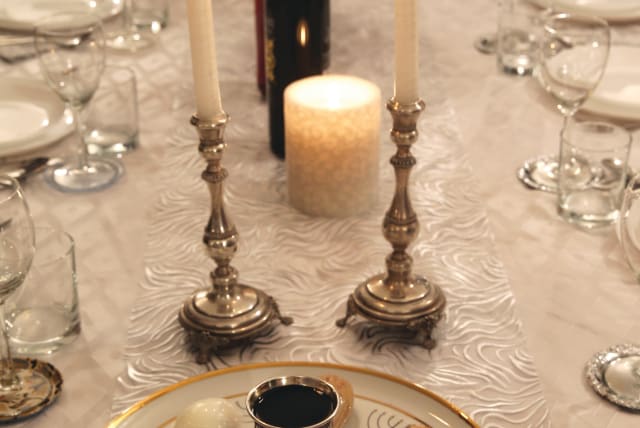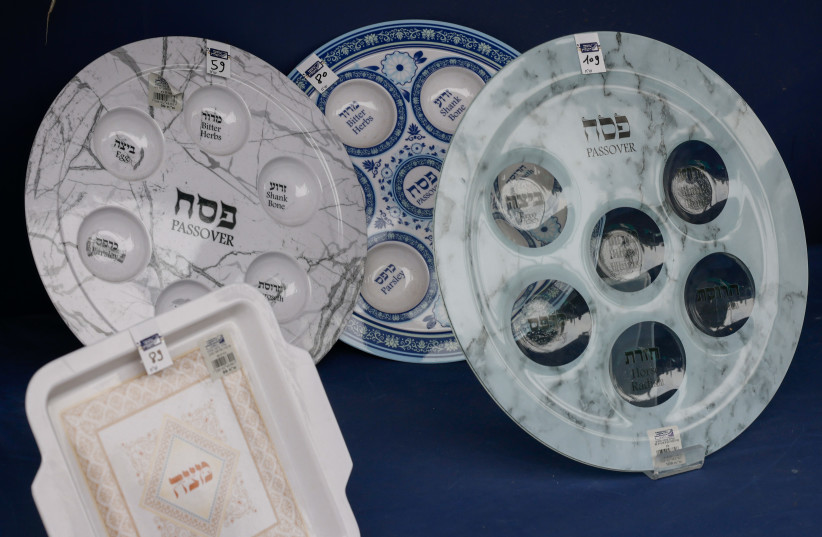An Episcopalian bishop warns his diocese against holding Christian Passover seders

Photos of Christian seders on social media show elements that would be out of place at a traditional Jewish seder, such as bread or Christian symbols.
For years, a growing number of Jews have issued the same public request ahead of Passover: Christians, please don’t hold your own seders glorifying Jesus.
Now, some Christian clergy are passing that same message onto their followers. Last week, the Episcopal bishop of Missouri, the Rev. Deon K. Johnson, posted an open letter to his diocese saying that Christian seders are “banned” because they advance supersessionism, or the belief that Christians have superseded, or replaced, Jews as God’s chosen people.
In his letter, Johnson explicitly forbade his diocese from “hosting, holding or celebrating Christian seders.”
Christian seders explicitly forbidden
“In our own time, the proliferation of Christian Seders on Maundy Thursday has taken root in parts of Christianity,” Johnson wrote, referring to the Thursday before Easter, which falls this year on April 6 and commemorates Jesus’ Last Supper. “Christians celebrating their own Haggadah outside of Jewish practice is deeply problematic and is supersessionism in its theological view. Christian communities hosting Seders is additionally problematic because it contributes to the objectification of our Jewish neighbors.”
Christian seders are linked with the popular notion that the Last Supper was itself a seder, a belief that scholars have disputed because the seder as we know it was developed decades after Jesus’ death. “To put it bluntly, Jesus certainly celebrated Passover, but neither he nor his disciples ever attended a Seder, any more than they drove a car or used a cell phone,” wrote Rabbis Yehiel Poupko and David Sandmel in Christianity Today in 2017.
Last year, Bishop Jennifer Reddall of the Episcopal Diocese of Arizona echoed that idea when she also warned against holding Christian seders.
“Jesus did not eat matzah ball soup or gefilte fish, sing Dayenu, or say ‘next year in Jerusalem,’’’ Reddall said. “For Jesus, the seder would have consisted of a lamb sacrificed in the Temple and eaten in Jerusalem, not a brisket cooked in Nashville.”
Photos of Christian seders on social media show elements that would be out of place at a traditional Jewish seder, such as bread or Christian symbols such as the cross. Such seders are also held by Messianic Jews – a movement that believes in the divinity of Jesus, often has ties with explicitly Christian organizations and is roundly considered non-Jewish by actual Jewish groups.
Those posts have sparked backlash from Jews who describe them as an affront. In 2020, Rabbi Danya Ruttenberg tweeted, “Jesus didn’t have a seder, Christianity is not Judaism, please respect us and our traditions.”
And in a viral Facebook post written last year, Talia Liben Yarmush wrote that Christians should feel welcome to attend seders hosted by Jews, but that hosting a Christian seder “is an awful thing to do.”
“Please don’t do it,” Yarmush wrote, “You have your own holidays. You have rich and beautiful traditions. I promise to respect them. Please reciprocate.”
Jerusalem Post Store
`; document.getElementById("linkPremium").innerHTML = cont; var divWithLink = document.getElementById("premium-link"); if (divWithLink !== null && divWithLink !== 'undefined') { divWithLink.style.border = "solid 1px #cb0f3e"; divWithLink.style.textAlign = "center"; divWithLink.style.marginBottom = "15px"; divWithLink.style.marginTop = "15px"; divWithLink.style.width = "100%"; divWithLink.style.backgroundColor = "#122952"; divWithLink.style.color = "#ffffff"; divWithLink.style.lineHeight = "1.5"; } } (function (v, i) { });

